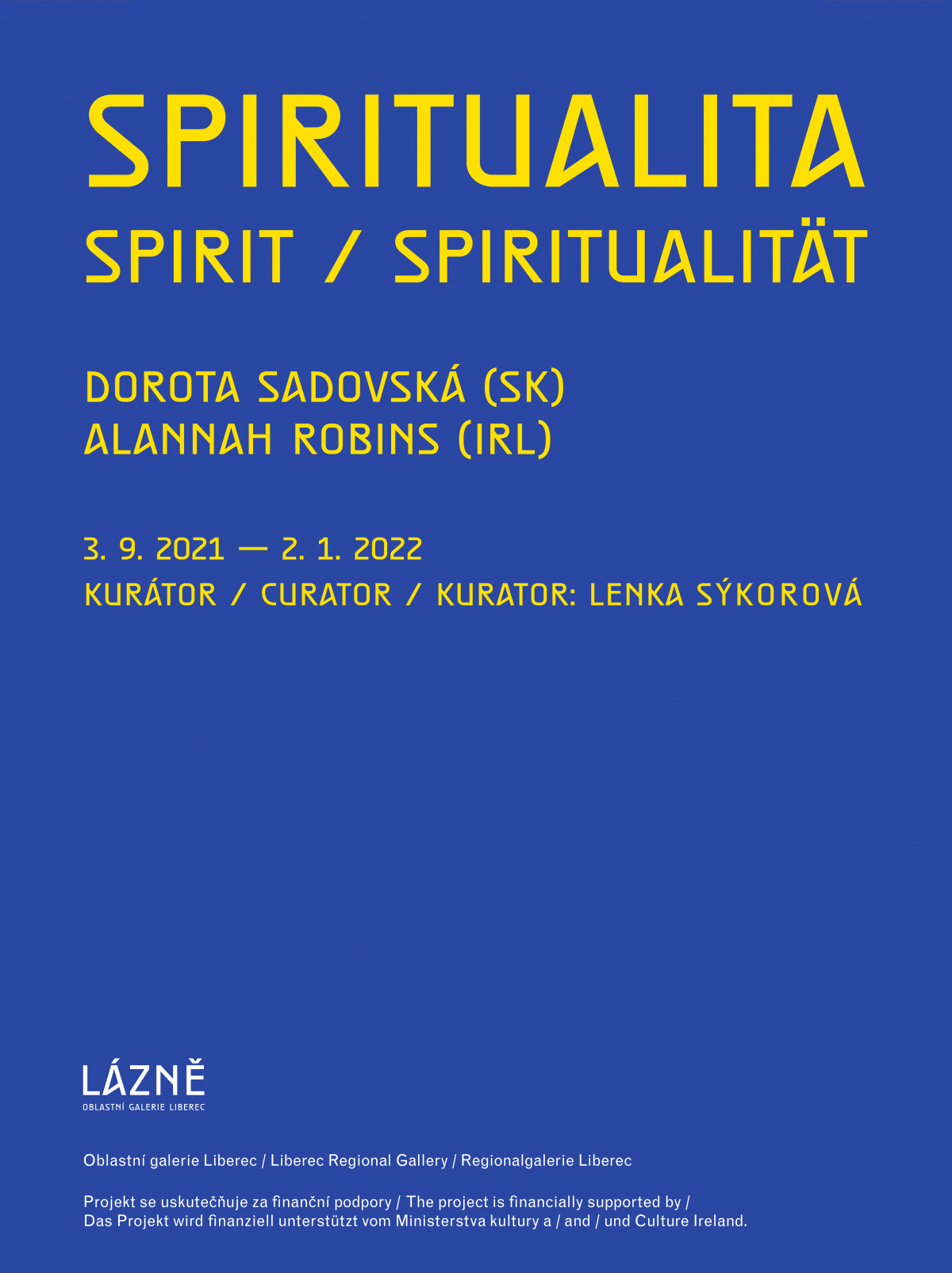Spirituality is the desire for the absolute. It is a journey of searching and the ability to learn about the world. Man in the context of transcendental philosophy, as developed by Immanuel Kant in the 18th century, is considered to be a subject exploring the possibilities of every experience where one cannot see or hear things other than in space and time. This encounter with the present moment through the senses was expanded in the 20th century by a language and its structures that influence our cognition. All cognition is thus subjective and its subject-matter is a world that can be grasped by the senses. The search for a transcendental perception of the world is a key moment of Slovak artist Dorota Sadovská’s and Irish artist Alannah Robins’s exhibition called Spirit. Spirituality and corporeality are embodied in their artwork, but each from a different subjective artistic point of view. In Liberec, Dorota Sadovská presents spirituality in the context of Christian iconography. In her artwork, spirituality stems directly from corporeality, where the human body is not an obstacle, but a mediator on the journey to spiritual knowledge. Her breastfeeding Madonna or saints present the religious aspect of spirituality from the position of a saint - man. Dorota Sadovská grasps the human body as matter just like the bearer of strong gestures and emotions and, in the case of the iconographic concept, as the bearer of attributes as well. In her artwork, human skin is transformed into a canvas that is cut and hurt. The intimacy of corporeality is presented in its purity and vulnerability, but is all the more readable and communicative through the array of the three primary colors: dark blue, bright yellow, and red. Alannah Robins, on the other hand, approaches transcendence with more humility to nature. She observes and perceives nature while fascinated by metamorphosis, as a kind of fusion with nature or transformation, which is inherent to nature. Transcendence is often associated with spiritual or intellectual growth. Alannah puts it in the context of the interpretation of French philosopher Maurice Merleau-Ponty, who in the 20th century emphasized the importance of human corporeality and cleared transcendence of a religious or intellectual experience. The artist also works with Heidegger's "Lichtung," which is best translated as being in any space in which an idea can reveal itself. In the context of the phenomenology of the 20th century, we can relate it to the process of asking on the journey of searching for the absolute. Being in the midst is crucial, but the depth of where we are standing means taking a certain perspective, and according to M. Merleau-Ponty, we shape the landscape of the perceptible by moving our body. It is the work of M. Merleau-Ponty that becomes a significant moment of the interpretation of Alannah’s artwork that opens up various horizons of being. In Liberec, Alannah Robins shows a series of drawings of black crows inspired by Ovid's Metamorphoses, where transformation is perceived as a certain kind of transcendence of silence or silencing and black as a symbol of negative news. The assembled objects are a certain reference to artifacts of human activity, and cut paper objects working with the penetration of light and shadow draw us into nature with a clear reference to the depth of M. Merleau-Ponty's landscape.
Dorota Sadovská is an established Slovak artist who entered the world of art as a solo artist in the 1990s. Since then, she has been happy to break down the typical scheme of hanging canvases and to use them instead in a space to create canvas installations. She also works with photography, video and drawing. Her artwork can be characterized by two thematic areas: the thematization of corporeality and the interest in Christian iconography. Dorota Sadovská graduated from the Academy of Fine Arts in Bratislava and École Nationale des Beaux Arts in Dijon in France. Alannah Robins is an Irish intermedia artist who graduated from the National College of Art and Design in Dublin and works in Ireland and Sweden. Grounded in the world of mythology, she allows herself to be immersed in her surroundings and to work intuitively.
The curatorial concept is focused on drawing with overlaps with the intermedia artworks. The exhibition presents two artists in a dialogue through artworks created specifically for the given space. Again, there is an emphasis on the complicated space and the use of its specifics for the benefit of the exhibition.
Lenka Sýkorová




.jpg)












.jpg)







